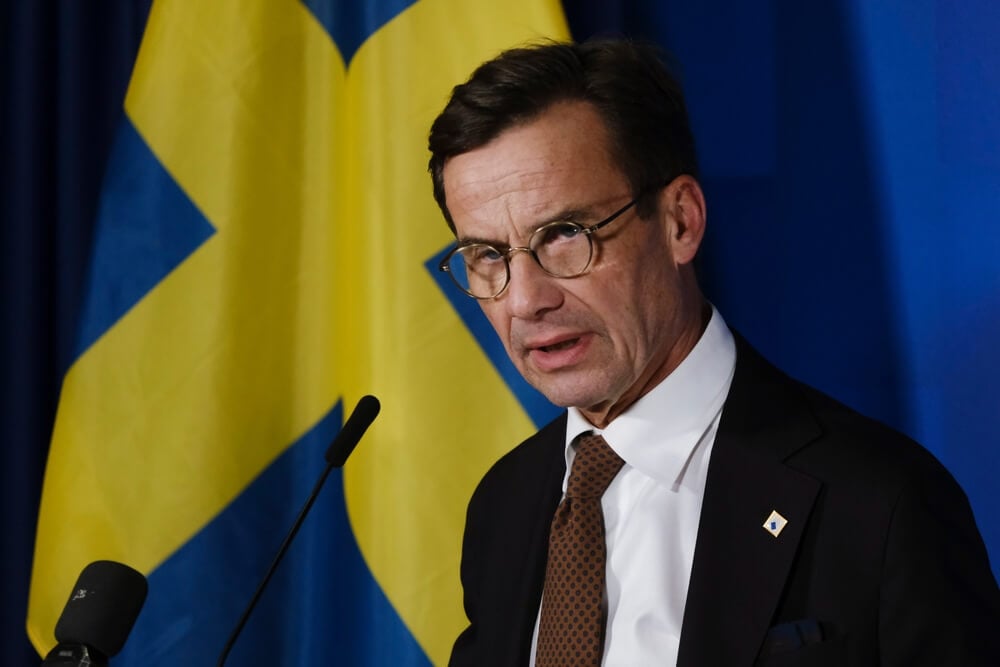A new wave of withdrawal of support for the UN Relief and Works Agency for Palestine Refugees (UNRWA) has been initiated by several European governments, posing a serious threat to the agency's survival due to accusations of collaboration with Hamas extremists.
Following Switzerland and the Netherlands, the Swedish government is the latest in a series to announce the suspension of financial support to UNRWA.
These three European countries are among the top ten largest donors to UNRWA, and together they have financed this UN agency with more than USD 2.3 trillion in the last three decades.
Their decision to cease support will not only make the work of UNRWA nearly impossible, but it will also set an example for other large donors, many of whom are traditionally large humanitarian donors, to follow.
"The government's core support to UNRWA ends," the Swedish Ministry of Foreign Affairs announced last Friday.
The Israeli government's earlier decision to effectively block UNRWA's operations, which it views as biased and a large number of its members complicit in Hamas' terrorist attacks on Israel on 7 October, influenced Stockholm's decision.
The withdrawal of the Netherlands and Switzerland
The Netherlands is on the way to drastically reduce, if not completely cancel, donations to UNRWA, since the upper house of the parliament adopted budget amendments at the beginning of December, which cut most of the previous donations to the UN agency for the Palestinians.
"UNRWA as an organisation has been in disrepute for repeated violations of neutrality and for some of its employees who glorified violence in telegram groups," reads the adopted amendment by right-wing deputies in the Dutch Parliament, which received convincing parliamentary support.
The Netherlands will reduce donations to UNRWA by EUR 4 million, starting in January
According to the new decision, the Netherlands will reduce donations to UNRWA by EUR 4 million, starting in January, which is more than 20% of the total state donation to this UN agency last year.
Last September, the upper house of the Swiss parliament accepted a proposal by right-wing deputies to cut donations to UNRWA, also due to findings about the bias of its mission and the participation of its members in the actions of Hamas.
The Senate, the upper house of the parliament, will need to make further decisions in order for the government of Switzerland, a major donor that has contributed nearly USD 500 million to UNRWA-I since 1990, to cease the support.
The impact of the Israeli ban on UNRWA
UN officials, particularly those leading their mission to aid the Palestinians, strongly oppose European governments' decisions to cancel or reduce aid. They view UNRWA as an indispensable mechanism, without which the vulnerable Palestinian population would face a humanitarian crisis.
At the beginning of the year, they successfully halted the initial wave of UNRWA funding cancellations. This occurred when nearly all major donors, ranging from the US and European countries to Japan, temporarily ceased their donations due to reports of UN associates being involved in Hamas' terrorist actions.
Recent decisions from several major European donors suggest that UNRWA does not deserve their trust
In January, Israel submitted a report to the UN, based on its intelligence, according to which 10% of the 12,000 members of UNRWA collaborated in some way with Hamas, including direct involvement in terrorist attacks on Israel.
This caused almost all major donors to withhold support for the UN mission, but most of them changed their minds a few months later, when the UN conducted an internal investigation and relaxed Israeli accusations.
However, recent decisions from several major European donors suggest that UNRWA does not deserve their trust, leading to a new round of cancellations or reductions in donations to the Palestinian agency.
The Swedish model bypasses UNRWA
Undoubtedly, Israel's October decision to ban UNRWA from operating on its territory, which created an insurmountable barrier to its operation, supported their decision.
The leaders of the UN claim that the mission to assist the Palestinians, which is the oldest agency in the system and has been in existence since 1949, has no alternative. They argue that its reduced funding, and particularly its shutdown, could have devastating consequences for the vulnerable Palestinians in the region.
 Along with the decision to cut funding to UNRWA, the government in Stockholm announced that it would almost double aid to the Palestinians in the region - PM Ulf Kristersson
Along with the decision to cut funding to UNRWA, the government in Stockholm announced that it would almost double aid to the Palestinians in the region - PM Ulf Kristersson
However, the Swedish government's model refutes these claims. Along with the decision to cut funding to UNRWA, the government in Stockholm announced that it would almost double aid to the Palestinians in the region from around USD 41 million so far to more than USD 72 million in 2025.
However, the aid will not go through UNRWA, but rather through other agencies such as the UN World Food Programme, UNICEF, the UN Population Fund, and the International Committee of the Red Cross.
Many other major donors, still torn between the need to help the vulnerable and heavy accusations against the UN agency, may find it acceptable to continue aid to the Palestinians in the region, bypassing UNRWA.
Furthermore, Sweden, the Netherlands, and Switzerland, the champions of international humanitarian solidarity, are driving the trend of denying aid to UNRWA, and their influence can easily spread to other donors.
The UN mission to aid the Palestinians cannot expect any better days with the arrival of a new administration in Washington in less than a month. It is almost certain that the Donald Trump administration, which is by far the biggest donor to UNRWA and has supported this mission with more than USD 5 trillion in the last 30 years, will cut the funds for international aid.